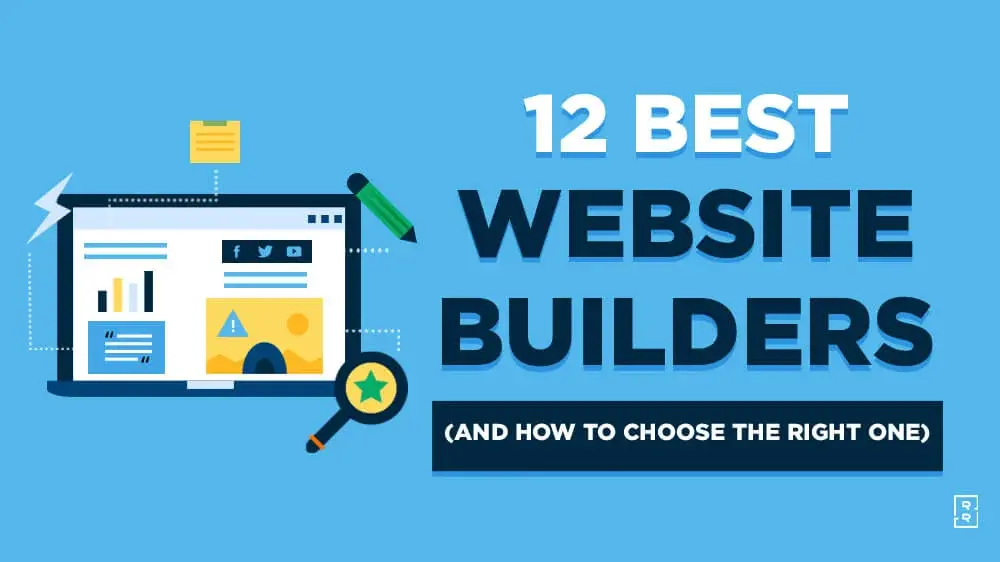Picking a Site Builder: Your Ultimate Guide to Choosing the Right One

In today’s digital age, having a solid online presence is essential for businesses and individuals alike. Whether you’re starting a new business, showcasing your portfolio, or launching a blog, a professional-looking website is crucial. But with so many website builders available, how do you pick the right one for your needs? In this comprehensive guide, we’ll explore everything you need to know about choosing a site builder in the world of web design.
Table of Contents
Understanding the Importance of Choosing the Right Website Builder
In the vast landscape of the internet, your website serves as your digital storefront, your online portfolio, and often your first impression to potential customers or visitors. It’s not just a collection of web pages; it’s a reflection of your brand, your values, and your offerings. Therefore, choosing the right website builder is paramount to your online success. Here’s why:
1. Professionalism and Credibility: A well-designed website instills trust and confidence in your audience. It communicates professionalism and credibility, making visitors more likely to engage with your content, products, or services. With the right website builder, you can create a polished and professional-looking site that leaves a lasting impression on your visitors.
2. Customization and Branding: Your website should reflect your unique brand identity and personality. The right website builder offers customization options that allow you to tailor your site to match your brand colours, fonts, and style. Whether you’re a creative professional, a small business owner, or an online retailer, customization tools empower you to create a website that stands out from the crowd and reinforces your brand identity.
3. Scalability and Flexibility: As your business grows and evolves, your website needs may change. The right website builder offers scalability and flexibility, allowing you to easily add new pages, features, or functionality as needed. Whether you’re launching a new product line, expanding your services, or entering new markets, your website builder should support your growth and adapt to your changing needs.
4. User Experience and Navigation: A well-designed website is intuitive and easy to navigate. It guides visitors seamlessly through your content, products, or services, encouraging them to explore further and take action. The right website builder provides user-friendly tools for creating clear navigation menus, organizing content effectively, and optimizing the user experience across desktop and mobile devices.
5. SEO and Online Visibility: Search engine optimization (SEO) plays a crucial role in driving organic traffic to your website. The right website builder offers built-in SEO features and optimization tools that help improve your site’s visibility in search engine results. From meta tags and descriptions to image optimization and site speed, these SEO-friendly features can help boost your rankings and attract more visitors to your site.
6. Support and Resources: Building and maintaining a website can be a daunting task, especially for those with limited technical expertise. The right website builder provides comprehensive support and resources to help you along the way. From tutorials and documentation to live chat support and community forums, access to assistance and guidance ensures that you can overcome challenges and achieve your website goals effectively.
Defining Your Website Goals
Before diving into website creation, defining clear goals is crucial. Your goals dictate the purpose and direction of your site. Whether it’s driving sales, increasing brand visibility, or sharing valuable content, clarity is critical. Start by identifying the primary objective of your website: Is it to sell products, generate leads, or showcase your work? Next, consider your target audience and their needs. Align your goals with their expectations to ensure relevance and engagement. Define measurable metrics to track success, such as conversion rates or website traffic. With defined goals, you can strategically plan and allocate resources to achieve desired outcomes effectively.

Identifying Your Target Audience
Identifying your target audience is crucial for effective communication. Start by understanding demographics, interests, and pain points. Conducted market research, analyzed data, and created buyer personas. Tailor your message, tone, and content to resonate with this audience. By knowing who you’re speaking to, you can craft messages that genuinely connect and drive engagement.
Evaluating Design and Customization Options
- Assess design flexibility: Determine the extent to which customization is possible within the chosen platform or software.
- Review pre-designed templates: Explore available templates and assess their suitability for your project’s aesthetic and functional requirements.
- Consider scalability: Ensure the chosen design options can accommodate future growth and changes without significant overhaul.
- Analyze user experience: Evaluate how design choices impact usability and accessibility for your target audience.
- Seek feedback: Gather input from stakeholders and users to identify strengths and areas for improvement in design and customization options.
Assessing Pricing and Payment Plans
- Compare pricing structures: Evaluate subscription-based, one-time payment, or usage-based pricing models to find the most cost-effective option for your budget and needs.
- Consider scalability: Determine if the pricing plan aligns with your projected growth and usage demands.
- Examine feature tiers: Assess the features included in each pricing tier and their relevance to your requirements.
- Factor in hidden costs: Look out for additional fees such as setup costs, transaction fees, or support charges that may impact the total cost of ownership.
- Review payment flexibility: Check for options like monthly, yearly, or customized payment plans to suit your cash flow and financial preferences.
Exploring Third-Party Integrations
- Identify integration needs: Determine which third-party tools or services are essential for your project’s functionality and workflow.
- Research compatibility: Assess whether the chosen platform or software supports integration with your desired third-party applications.
- Evaluate API documentation: Review the documentation provided by both the platform and the third-party services to understand integration requirements and capabilities.
- Consider scalability: Ensure that the integrations can scale with your business needs and accommodate future expansion without significant technical hurdles.
Considering Customer Support and Assistance
- Evaluate support channels: Assess the availability of email, phone, live chat, and knowledge base resources for assistance.
- Review response times: Look into the average response and resolution times for customer inquiries or technical issues.
- Check service availability: Determine if support is offered 24/7, during business hours, or based on a specific timezone.
- Examine user feedback: Research customer reviews and testimonials to gauge satisfaction levels with the quality of support provided.
- Consider additional resources: Look for community forums, tutorials, and training materials to supplement customer support offerings.
How to Pick the Right Website Builder: Step-by-Step Guide
- Define Your Needs: Identify the purpose and goals of your website. Consider factors like the type of content, functionality, and desired design aesthetic.
- Research Options: Explore different website builders available in the market. Consider popular platforms like Wix, WordPress, Squarespace, and Shopify, among others.
- Assess Ease of Use: Evaluate the user-friendliness of each platform’s interface. Look for intuitive drag-and-drop editors and customizable templates that match your skill level.
- Review Design Options: Examine the range of design templates and customization features offered by each website builder. Ensure they align with your branding and aesthetic preferences.
- Check Pricing Plans: Compare pricing plans and subscription options to find a solution that fits your budget. Consider factors like included features, storage limits, and transaction fees for e-commerce.
- Evaluate Integrations: Determine if the website builder supports integration with third-party tools or services you may need, such as email marketing, analytics, or payment gateways.
- Consider Scalability: Think about the future growth of your website and business. Choose a platform that can accommodate scalability without compromising performance or functionality.
- Read Reviews and Testimonials: Research user reviews and testimonials to understand the experiences of other users with each website builder. Pay attention to feedback on customer support, reliability, and overall satisfaction.
- Trial Period or Demo: Take advantage of free trials or demos offered by website builders to test their features and functionality firsthand. This allows you to assess usability and compatibility before committing.
- Seek Recommendations: Ask for recommendations from peers, colleagues, or industry experts who have experience with website builders. Their insights can provide valuable guidance in making your decision.
- Finalize Your Choice: Based on your research and evaluations, select the website builder that best aligns with your needs, budget, and long-term goals. Sign up for a plan and begin building your website with confidence.

FAQs:
What is the primary function of my website?
How many pages should my website have?
What design offerings should I look for in a website builder?
Can a website builder support growing traffic?
What payment options are available for website builders?
How vital are third-party integrations for my website?
What kind of customer support should I expect from a website builder?
Conclusion:
Picking the right website builder is a crucial step in establishing your online presence. By understanding your website goals, target audience, design preferences, pricing considerations, and support needs, you can make an informed decision that aligns with your objectives. Whether you’re a small business owner, entrepreneur, or freelancer, choosing the perfect website builder will set the foundation for your online success. With the insights provided in this guide, you’re well-equipped to embark on your website-building journey and create a stunning website that reflects your brand identity and achieves your desired outcomes.






